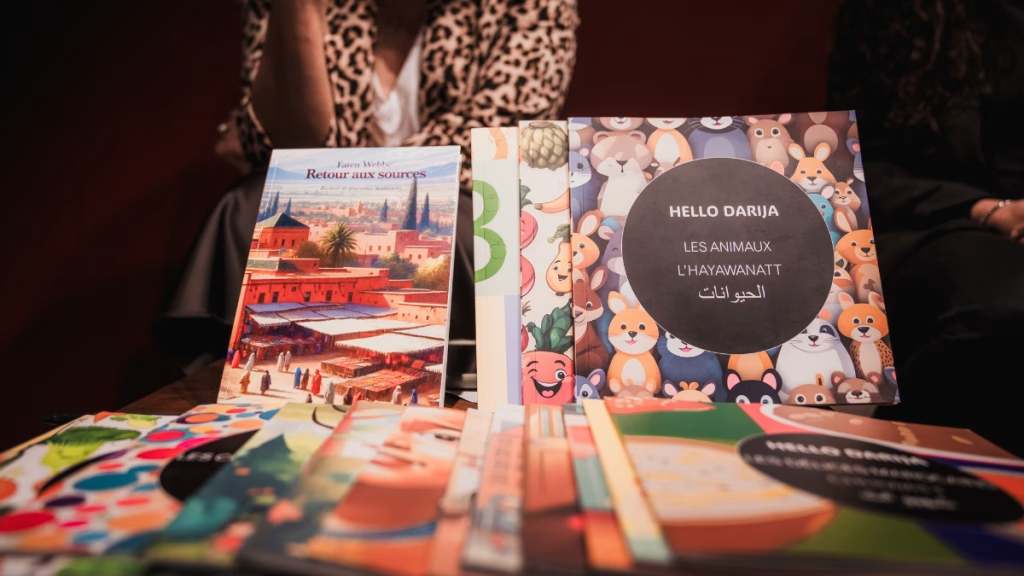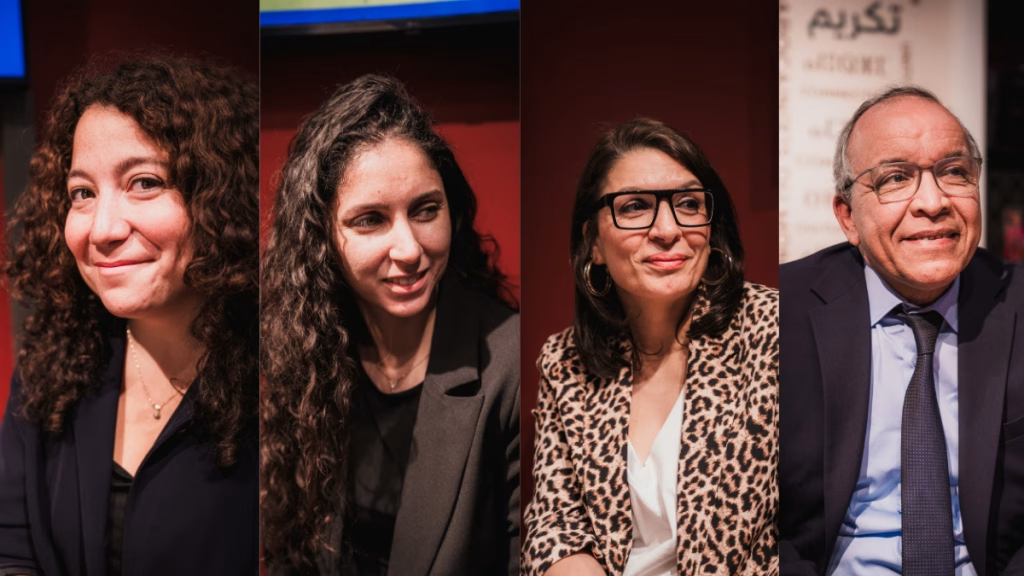“Languages and Migration, Teach Me Darija” was organized on Sunday, April 20, 2025, at the shared stand of the Ministry of Youth, Culture, and Communication and the Council of the Moroccan Community Abroad (CCME). Chadia Benabdeljalil (Canada) and Ghita Sennouni (Morocco), co-authors of the “Hello Darija” collection, and Faten Wehbe (Belgium), author of “Retour aux Sources”, a compilation of Moroccan proverbs, led this discussion moderated by Aziz Rifki, from the CCME.
The three panelists, who have lived in Belgium and Canada, where the migratory experience is different, expressed a shared need: to pass their culture and language of origin to their children. For Faten Wehbe, a third-generation Moroccan in Belgium, transmitting this “cultural heritage has become a cause,” particularly “Darija, as it is the mirror of our society, encapsulating our experiences, emotions, and humor.” She chose to collect and compile proverbs because her generation “was immersed in Moroccan proverbs, which were only passed down in speech. while in our interactions with our children, contact with Darija is not automatic, and proverbs are a playful way to understand both the language and the culture.” In 2024, she published a book titled “Retour aux Sources”, a collection of 100 Moroccan proverbs in Darija, written in the Latin alphabet with explanations in French to make them accessible to a wide audience. “This project aims to preserve and transmit the richness of Darija to the younger generations of the Moroccan diaspora in Belgium and beyond.”

Ms. Faten gathered these proverbs by working with “elders” and members of the Moroccan community. She emphasized that “these expressions are a cultural treasure reflecting popular wisdom, often tinged with humor and observations about daily life.” Her work also serves as “a bridge between generations and cultures, valuing a linguistic heritage often underrepresented in official written materials.”
For Chadia Benabdeljalil and Ghita Sennouni, the context differs, but the need remains the same: to transmit. Having moved to Canada as children with their parents, they were prompted to reflect on their Moroccan identity by answering questions from their classmates and neighbors, which “made them feel even more Moroccan.” This “conscious effort” was also evident each time they returned to Morocco. “I wanted to be able to express myself during exchanges with my family in our language to transmit, beyond words, flavors and emotions,” explains Chadia Benabdeljalil. As a mother, she was determined to preserve this “Moroccan side” in her daughter as well. “I don’t want her to be deprived of a part of herself when visiting family or meeting people here in Morocco, so she can, like me, enjoy the beauty of this heritage,” she affirms.

The “Hello Darija” collection offers illustrated children’s books to learn Darija in a fun and accessible way. These books cover various themes such as the home, animals, transportation, colors, emotions, and more. The words are written in French and Arabic but they phonetically reflect the Darija pronunciation.
Follow us for more news from the Rabat Book Fair 2025












